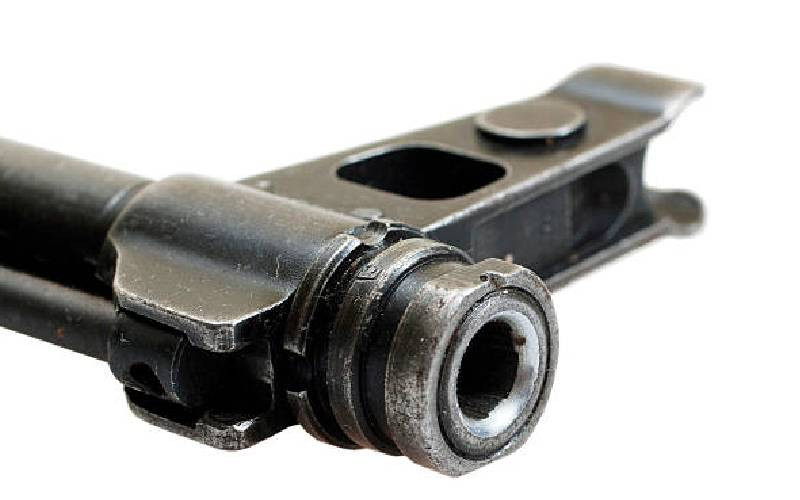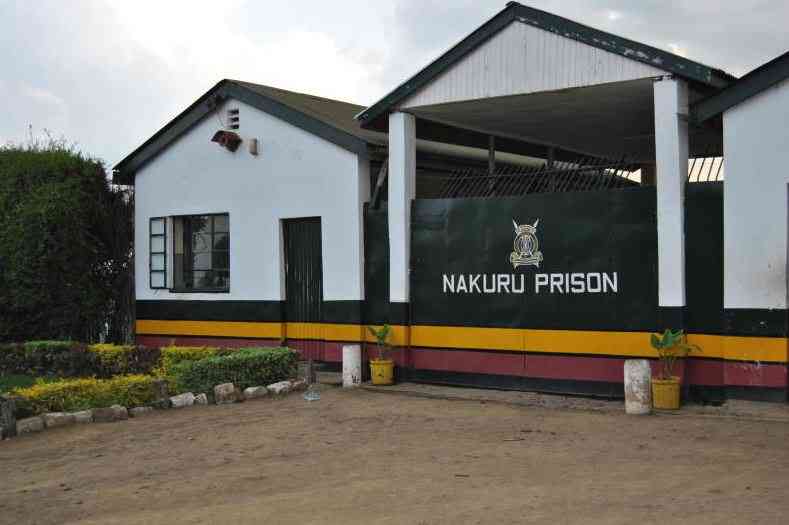 |
|
Prisoners at the Kisumu main Prison at Kodiaga get baptised by Seventh Day Adventist Church officials on Saturday. More than 215 inmates were baptised.[PHOTOS: COLLINS ODUOR/STANDARD] |
NAIROBI, KENYA: Poor services in prisons could be a thing of the past if a call for the Government to privatise the facilities is heeded. The Government has been asked to adopt a private prisons management system as the best way of addressing harsh conditions in the correctional institutions.
A case study conducted by Alex Kimani of the Kabarak University School of Law indicates that the criminal justice system in the country is reeling under a rising number of inmates and overcrowded prison conditions, which can easily be managed through privatisation.
The study points out that privatisation can save the Government the high cost of managing the facilities by about 10 to 15 per cent of the current cost.
According to Kimani, there are different privatisation modes, including contracting a private company, as well as operational and managerial privatisation methods.
"The Government can hire a private entity to perform specific services in prisons such as catering, health care, laundry and janitorial services," said Kimani in a paper presented during the fourth Kabarak University international conference.
He added that contracted private companies can also be hired to provide correctional services such as drug rehabilitation and job training to inmates. "Inmates are subjected to poor living standards that include bad diet, sanitation and housing that are below human expectations. These services can only improve if private companies will be contracted," said Kimani.
Under operational privatisation, he said the Government makes the policy for the prisons and is expected to monitor the performance of the contractor, but the day-to-day business of running the prison is left to the private company.
Under operational privatisation, managerial responsibilities are handled by contractors, which minimises corruption.
"There is high corruption in employment of staff in correction centres based on tribalism. This denies job opportunities to those who qualify," he said.
Kimani also says private companies can also be hired to design and build a prison.
To avoid corruption in employment of staff at the facilities, he observes that contracting private entities can provide management services such as staffing, administration and security.
"Just as a bank might hire a security company to guard its assets, the prison service hires a company to staff, train, and manage the personnel at the prison. Under the recommendation, the private sector is tasked to manage and employ staff for correctional institutions," he said.
However, the officer in charge of Nakuru GK Prison James Sawe said contracting prison services would not reduce operational costs but rather increase them.
Sawe blamed poor services at prison facilities on laxity by the judicial system in issuing judgements.
He said due to delayed justice, the facilities always get congested because of mixing convicts and remandees. "Congestion can only be reduced at prisons if the Judiciary works for more than 24 hours and those convicted for less than six months made to do community work instead of being sent to prison," he observed.
Stay informed. Subscribe to our newsletter
On rehabilitation and correction of inmates, he pointed out that police reforms have rectified prisons and that majority of those convicted come out as reformed individuals.
He added that though privatisation would improve service delivery, it would be an expensive affair unless there is partnership with the Government.
 The Standard Group Plc is a
multi-media organization with investments in media platforms spanning newspaper
print operations, television, radio broadcasting, digital and online services. The
Standard Group is recognized as a leading multi-media house in Kenya with a key
influence in matters of national and international interest.
The Standard Group Plc is a
multi-media organization with investments in media platforms spanning newspaper
print operations, television, radio broadcasting, digital and online services. The
Standard Group is recognized as a leading multi-media house in Kenya with a key
influence in matters of national and international interest.
 The Standard Group Plc is a
multi-media organization with investments in media platforms spanning newspaper
print operations, television, radio broadcasting, digital and online services. The
Standard Group is recognized as a leading multi-media house in Kenya with a key
influence in matters of national and international interest.
The Standard Group Plc is a
multi-media organization with investments in media platforms spanning newspaper
print operations, television, radio broadcasting, digital and online services. The
Standard Group is recognized as a leading multi-media house in Kenya with a key
influence in matters of national and international interest.









